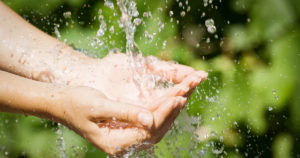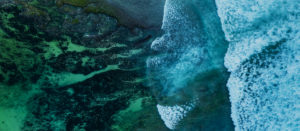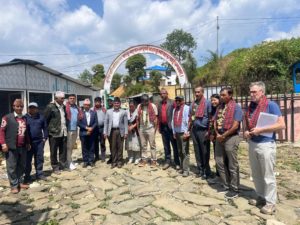
Wash and Covid-19
FCG’s work with WASH – water supply, sanitation and hygiene – is more important than ever. In these times of novel coronavirus transmission, the best possible prevention is to wash your hands thoroughly with soap and water, many times a day. The washing needs to be long enough and thoroughly – singing ‘Happy Birthday to You’ twice through is a good timer.
But even in normal times, clean drinking water, access to toilets and awareness raising on handwashing and other hygiene practices are an important part of our work. There are a huge list of bugs (bacteria, viruses, parasites) transmitted via the ‘faecal-oral route’. According to the World Health Organisation, over 1 billion people globally lack access to safe drinking-water supplies, while 2.6 billion lack adequate sanitation; diseases related to unsafe water, sanitation and hygiene result in an estimated 1.7 million deaths every year.
Most of us have had at least some sort of stomach upset, or have experienced traveller’s diarrhoea or similar. Personally, when living in Nicaragua for three years I picked up lots of local parasites and had a permanently uncertain tummy! Imagine if you couldn’t ensure that your children would have clean water for drinking, or flies were carrying bacteria to your food. Open defaecation – shitting outside – is an everyday occurrence in many parts of the world, and it is a big risk for everyone in the community. Even if you have a toilet and use it, you aren’t safe unless everyone in the community does so. That requires a lot of work on behaviour change communications. FCG is working with these WASH issues in many countries worldwide, including Nepal, Kenya, Moldova, Tajikistan, Vietnam, Sri Lanka, Myanmar and Kiribati right now.
And now, with COVID-19 emerging worldwide, having access to water and soap, and the understanding of the importance of using them, is critical for controlling transmission worldwide.
COVID-19 is interfering with the work of FCG staff ourselves. Luckily no cases among staff as yet (though presumably that is a matter of time). However, international travel and meetings have been curtailed, interfering with our assignments and projects. Some of our staff are working from home where possible. Some staff in the projects are feeling anxious, as they are not able to access good health care in remote areas. Uncertainty is the name of the game for the coming months.





